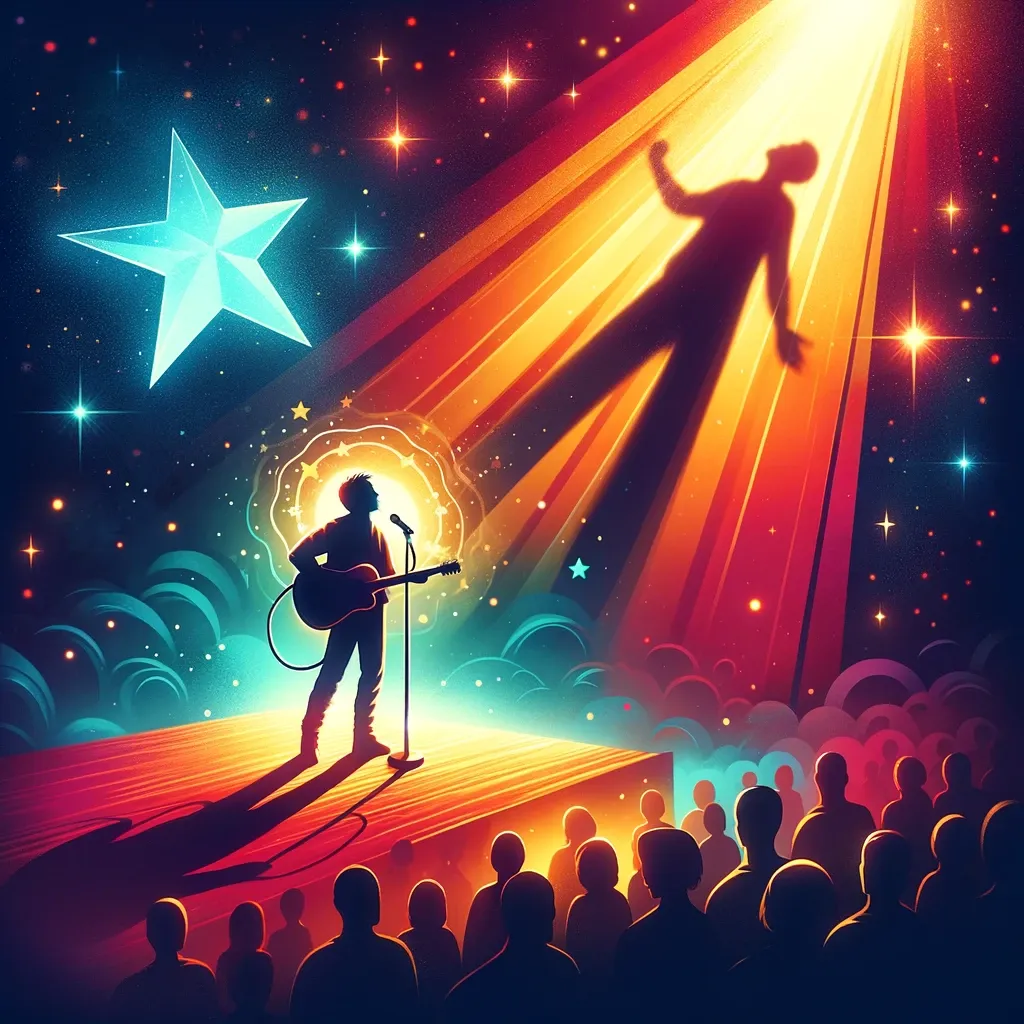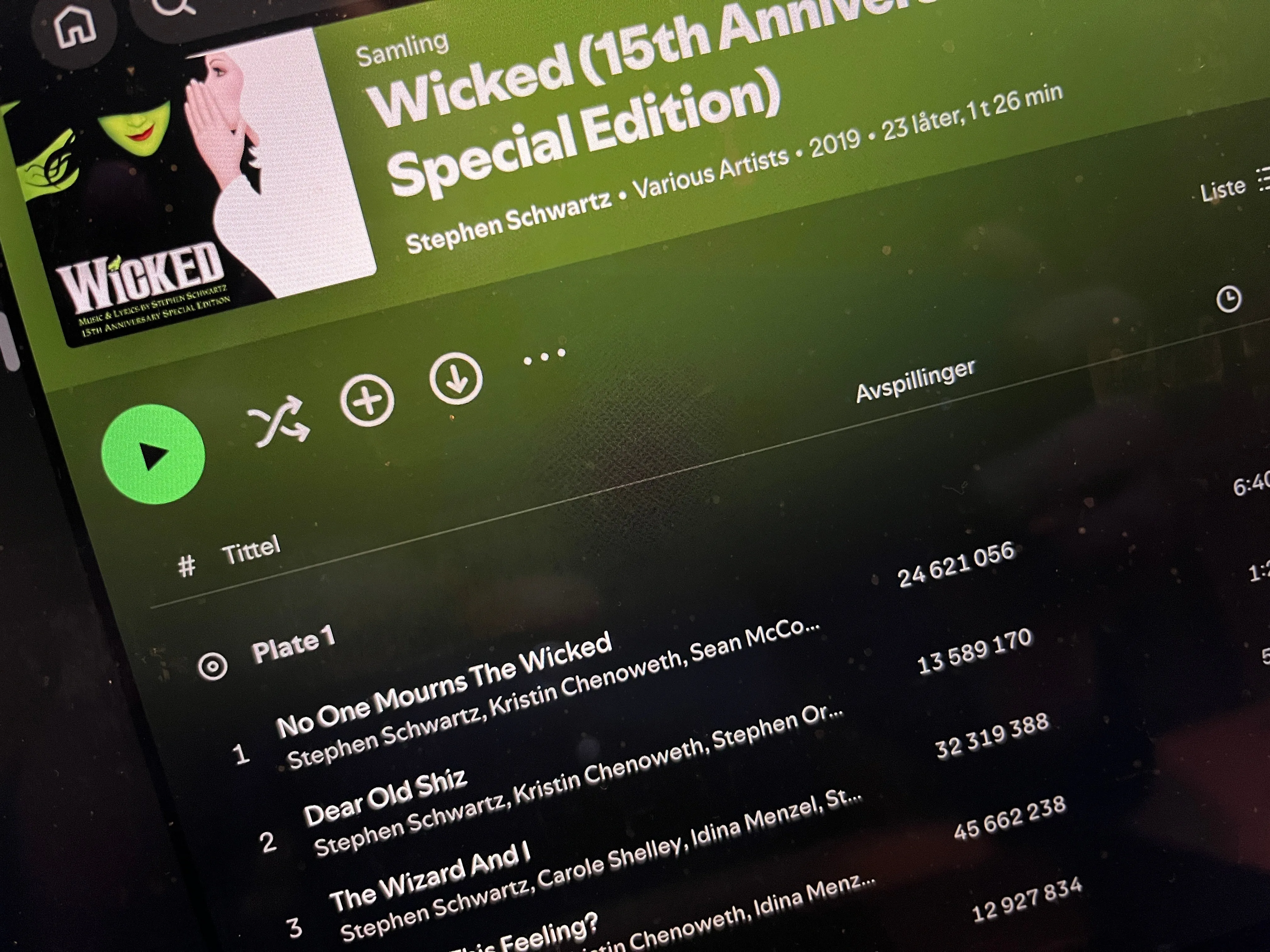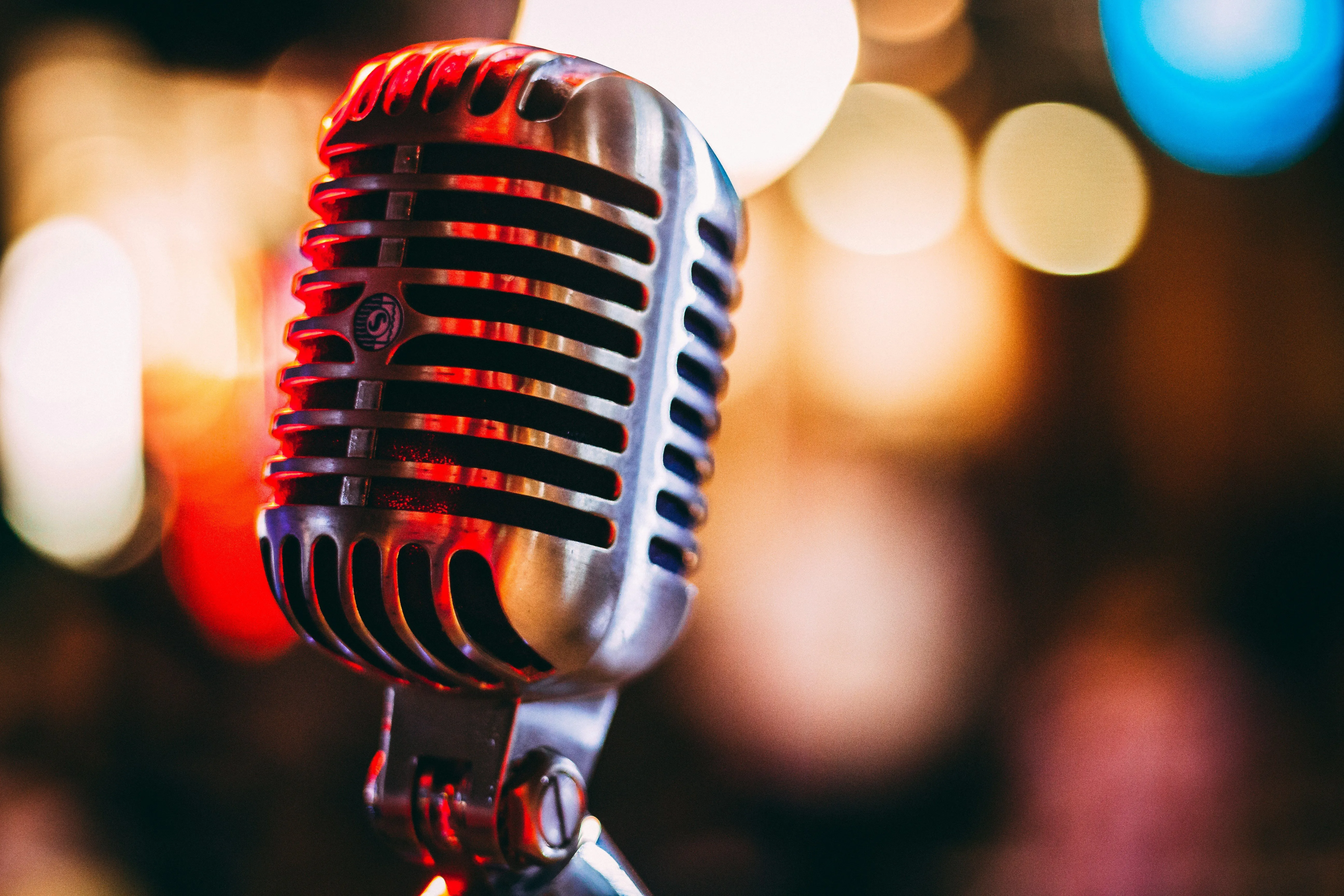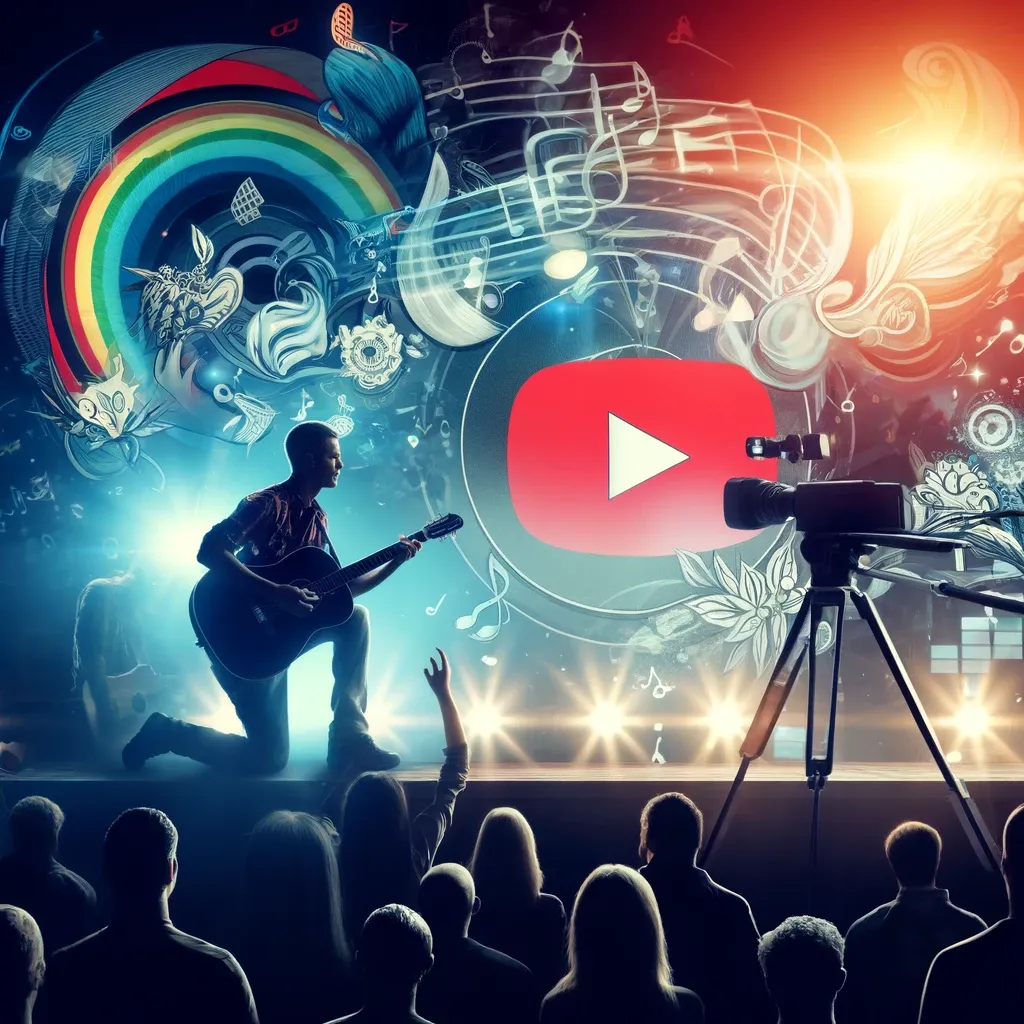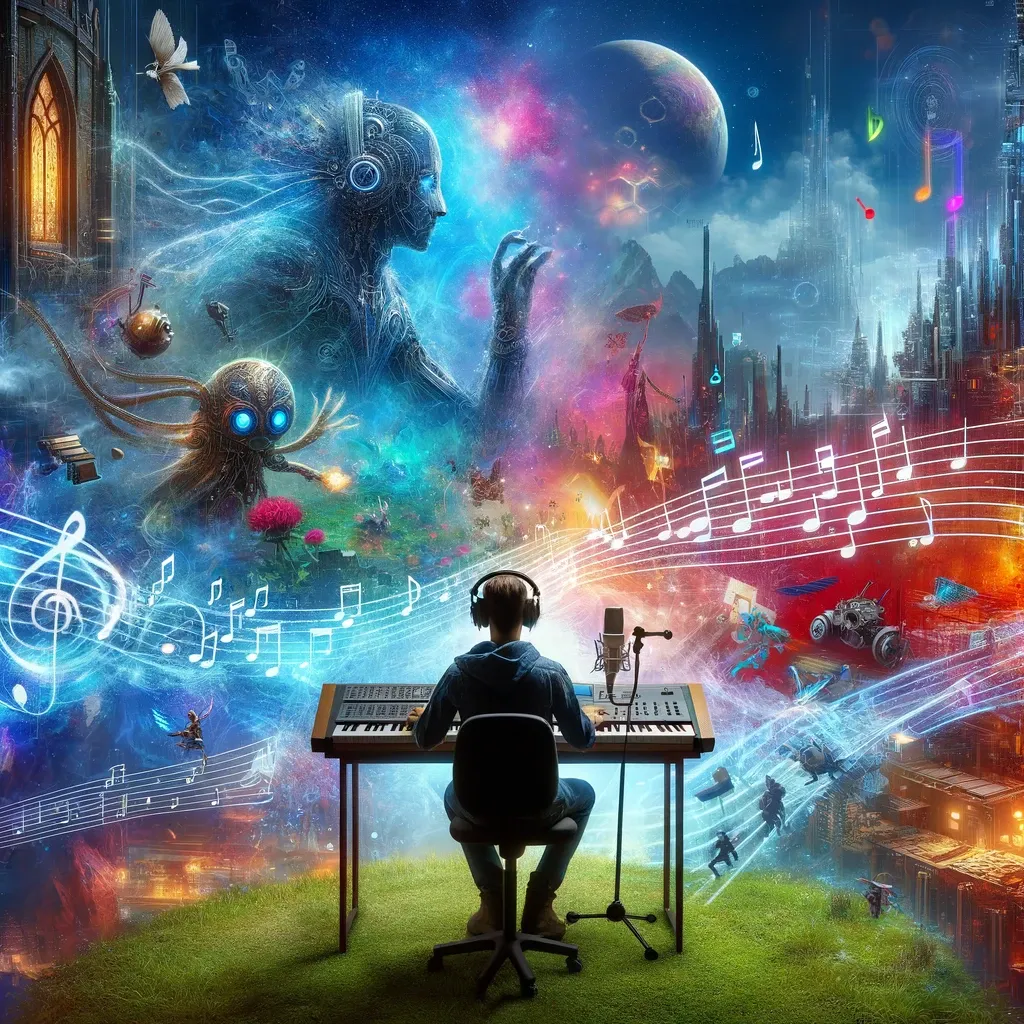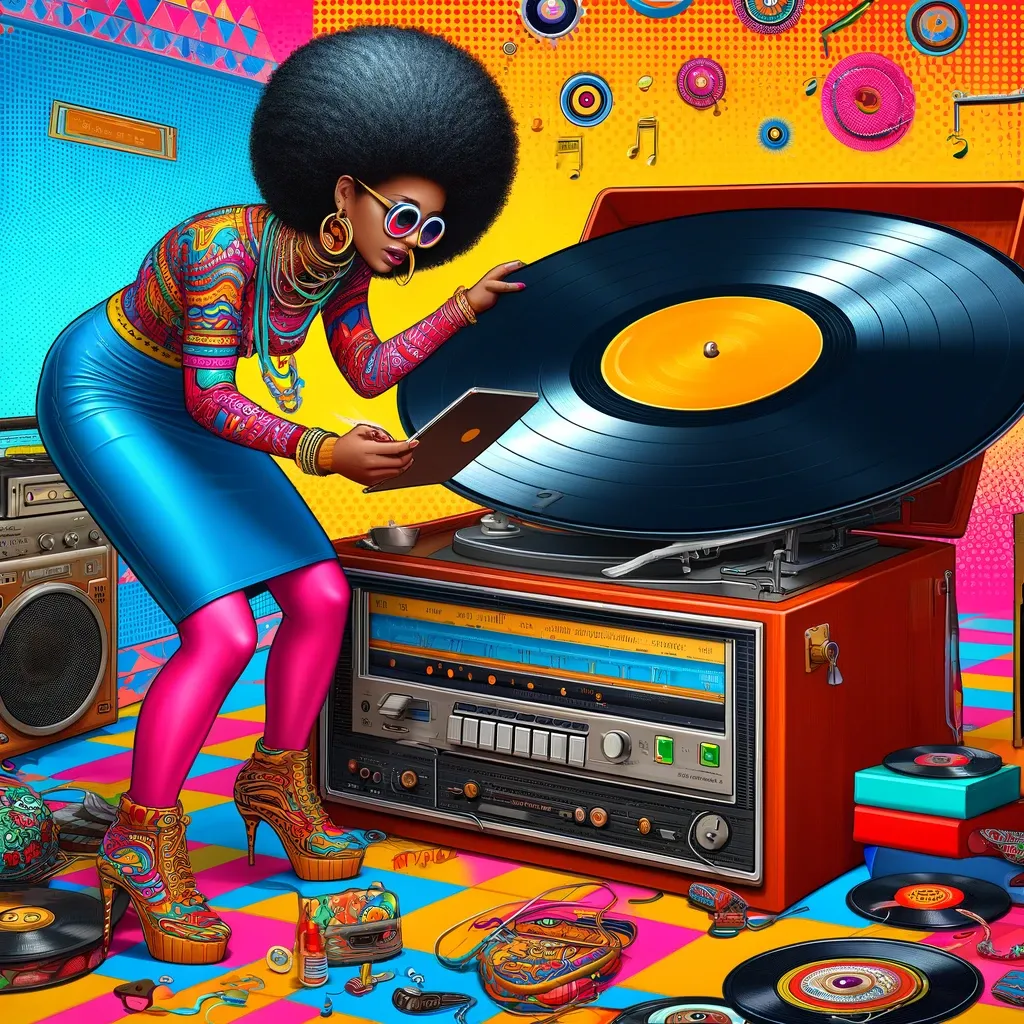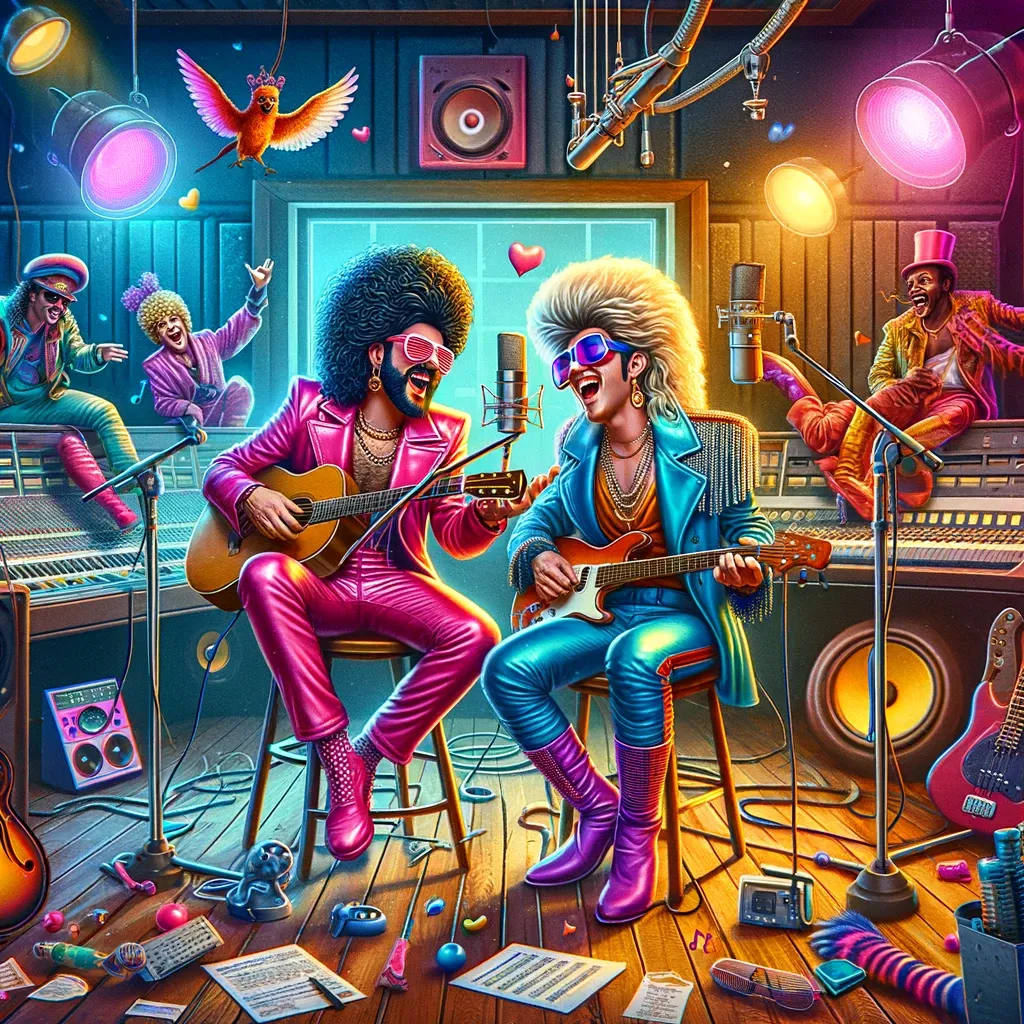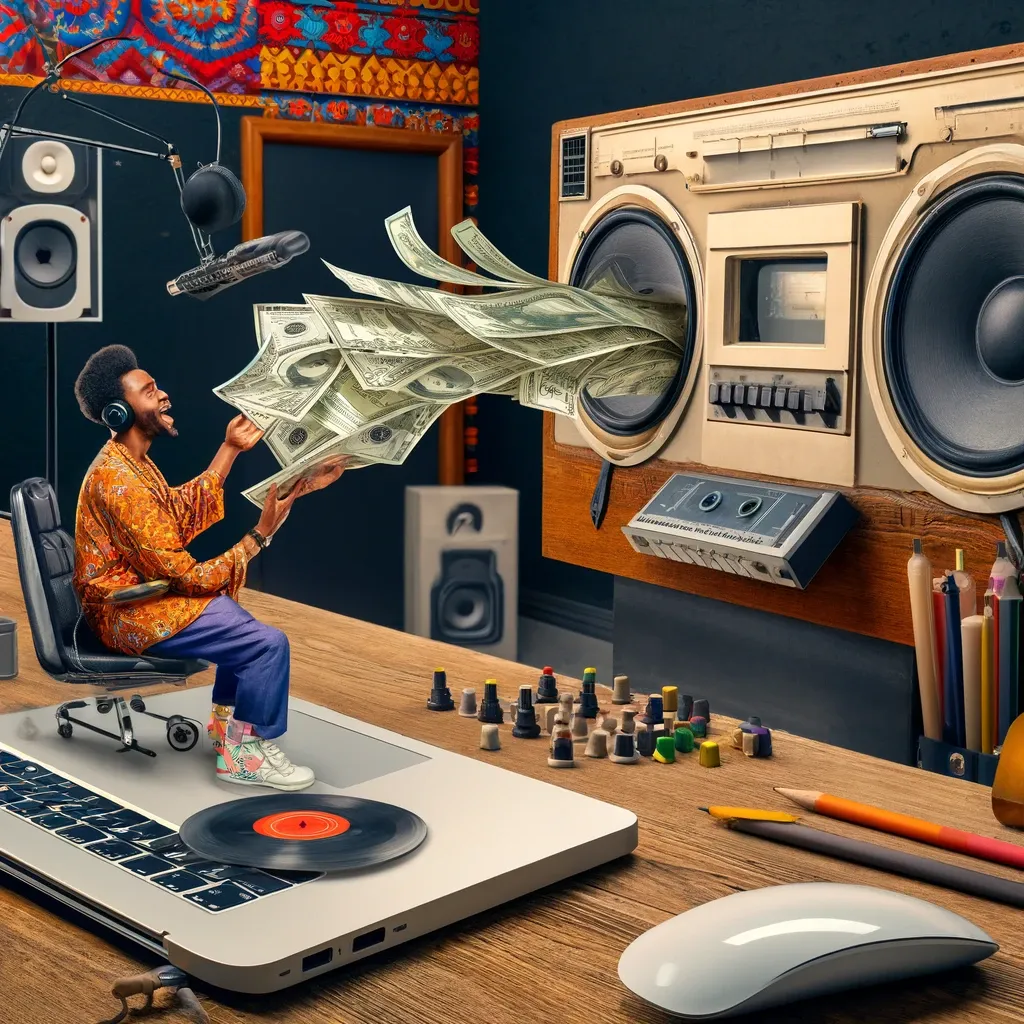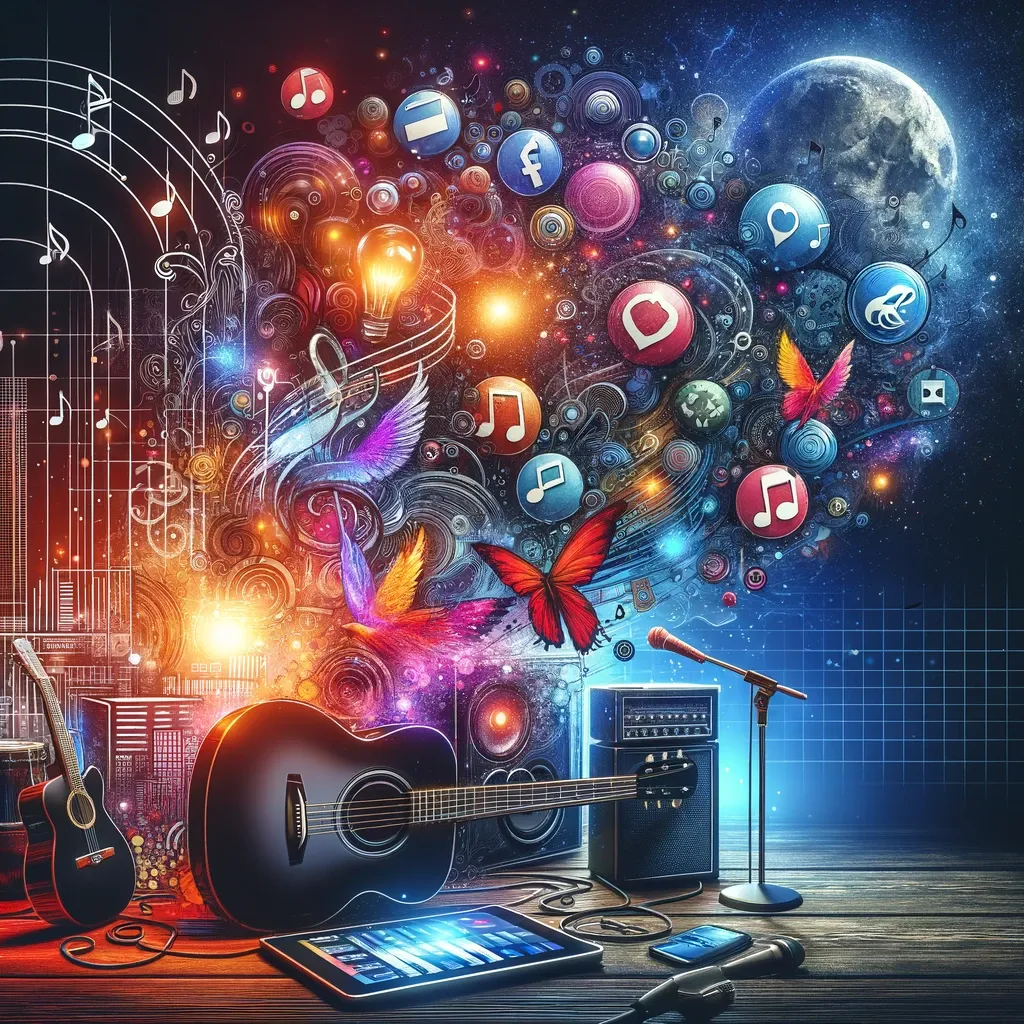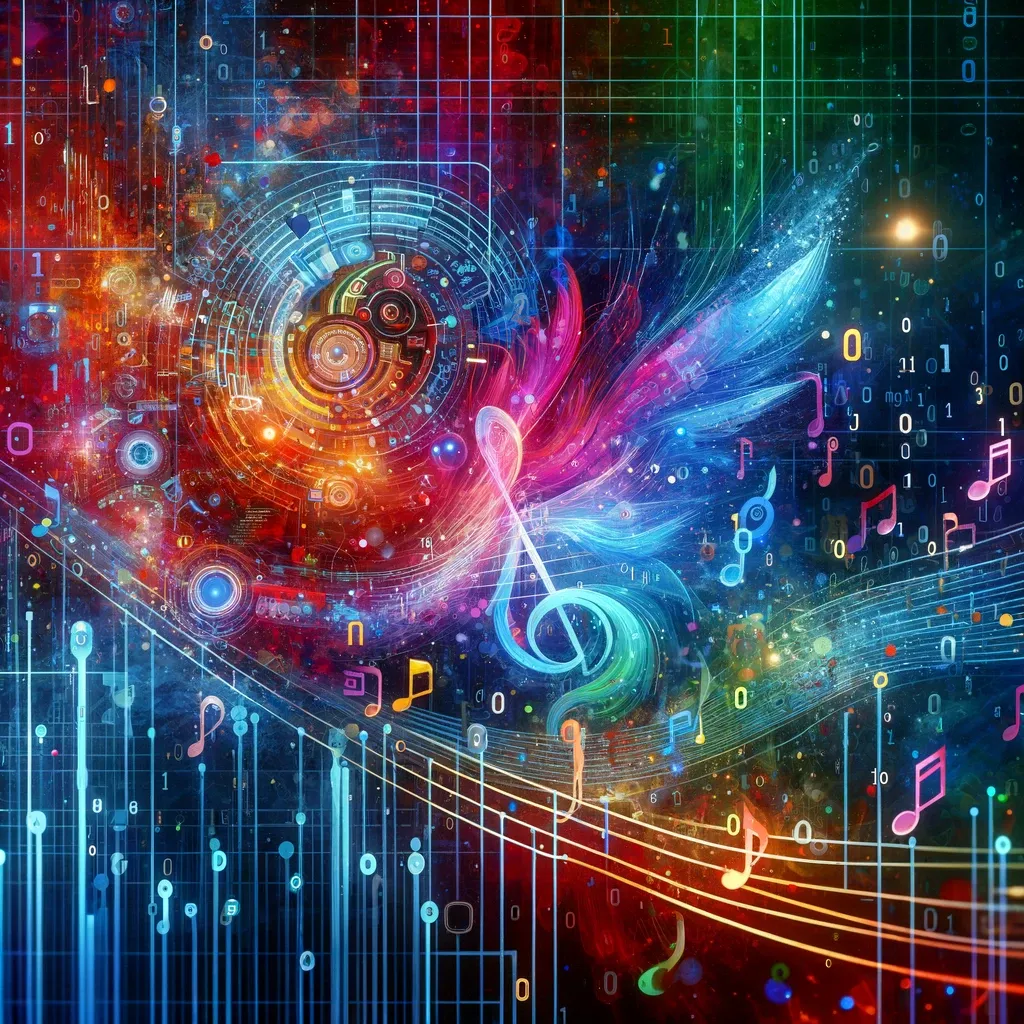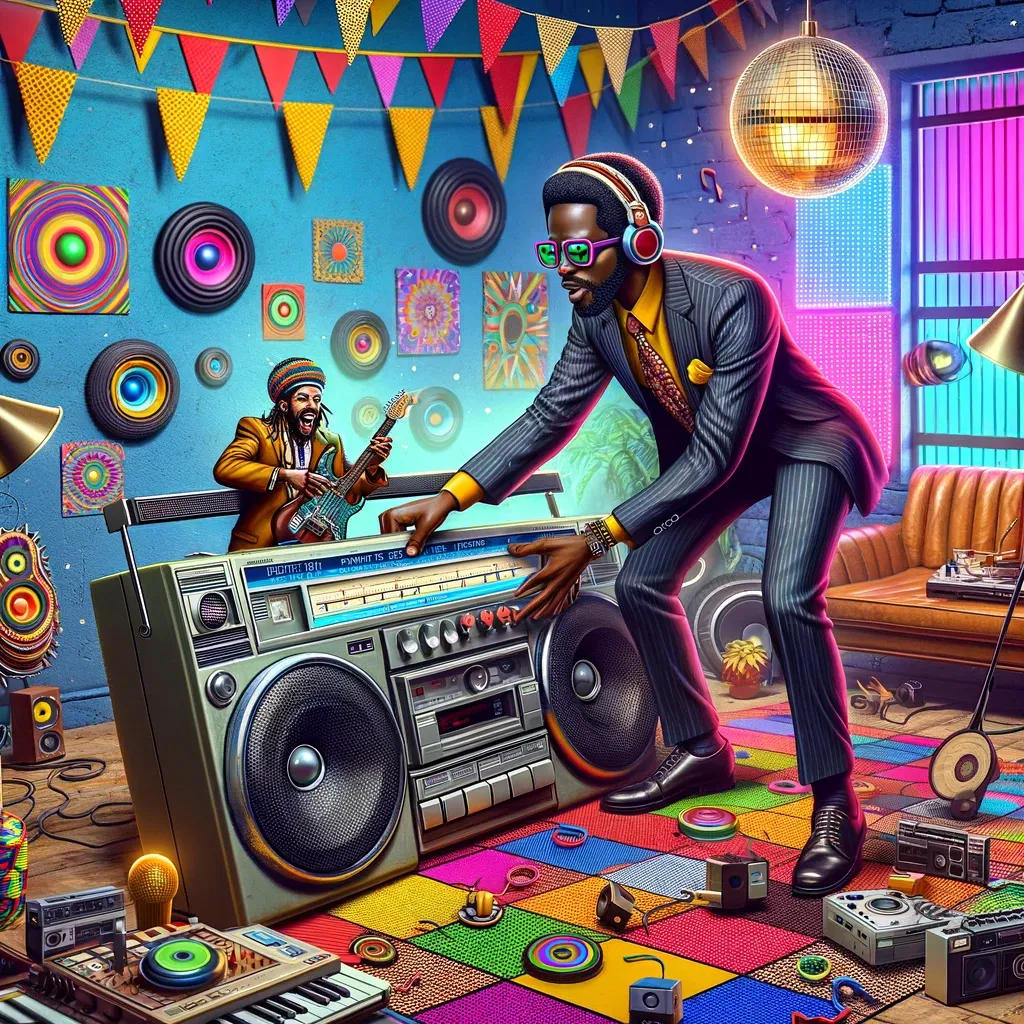Why Most Musicians Are Doing Performance Assessment Wrong (And It's Costing Them Fans)
The Technical Perfectionist Trap That's Keeping Even Successful Artists From Reaching Their Full Potential
And the one shift that could change everything about your music career
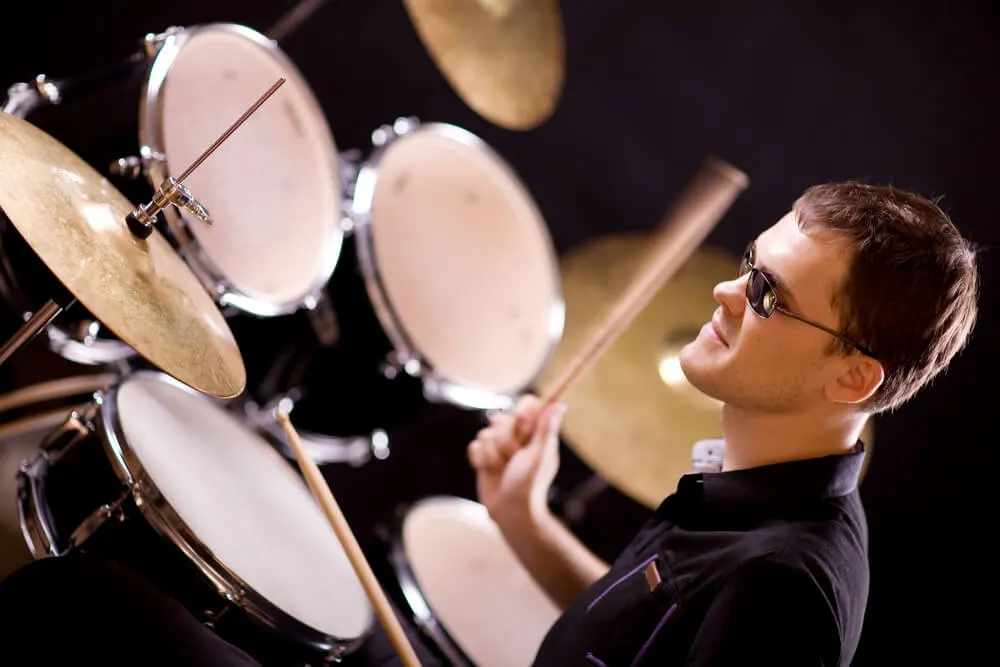
How to Do Performance Assessment (The Right Way):
Track these 4 things instead of technical mistakes:
After the Show: Email signups, merch sales, fans talking to you
Phone Test : When do phones go down? When do people lean in?
Energy Check: Which songs make people move or sing along?
Stay Power: How many people leave early vs. stay until the end?
Simple 10-Minute Process:
Write down what you noticed right after each show
Look for patterns after a few gigs
Do more of what gets people excited
Drop what doesn't work
Remember: Fans forget mistakes. They remember feelings.
You just finished a solid 90-minute set. The crowd seemed engaged, you hit most of your marks, and you're feeling pretty good about the night.
But then, in the car on the way home, what do you fixate on?
That one chord change you flubbed in the bridge of song seven.
The slightly rushed tempo on your opening number.
The moment your voice cracked just a tiny bit on that high note.
Sound familiar?
Here's what's driving me crazy after watching this pattern for 19 years: Even musicians pulling in $10K-50K annually – artists who clearly know their craft and are making real money from their music – are making this fundamental mistake when they assess their performances.
And it's costing them the one thing that actually matters: deeper fan connections that translate into sustainable income growth.
You're obsessing over technical mistakes while completely missing the moments that actually mattered to your audience.
The Post-Show Obsession That's Killing Your Growth
Picture this: You just finished a solid 90-minute set. The crowd seemed engaged, you hit most of your marks, and you're feeling pretty good about the night.
But then, in the car on the way home, what do you fixate on?
That one chord change you flubbed in the bridge of song seven.
The slightly rushed tempo on your opening number.
The moment your voice cracked just a tiny bit on that high note.
Sound familiar?
You're obsessing over technical mistakes while completely missing the moments that actually mattered to your audience.
And here's what's really frustrating – I've watched this same pattern destroy promising careers for nearly two decades.
The $50K Ceiling Most Musicians Never Break
Here's what I've observed from working with hundreds of artists: The musicians who stay stuck at their current income level are the ones who think performance assessment means cataloging their technical errors.
Meanwhile, the ones who consistently level up from that $10K-50K range into six-figure territory? They're tracking entirely different metrics.
Let me share what happened with a folk artist I worked with recently...
She spent 20 minutes after her show beating herself up over a missed chord change in the third song. What she completely overlooked was that the audience was most engaged during her storytelling between songs – people were leaning in, phones went down, and the room got that magical quiet that only happens when you've truly captured attention.
But because she was so focused on technical execution, she missed the opportunity to develop what was actually working.
Six months later, she's still playing the same venues for the same money, wondering why her career isn't growing.
The Real Performance Assessment Metrics (That Actually Pay Your Bills)
While you're worried about that timing issue, here's what you should actually be tracking:
Post-Show Behavior Patterns That Matter:
- Are people approaching your merch table? According to 2023 data from atVenu, the average small to mid-cap artist makes 9x more per show in gross merchandise sales than a year's worth of streaming royalties.
- Do fans stay after the show to talk to you personally? Polite applause is nice, but genuine connection means they want to extend the experience.
- Are audience members tagging you in social media posts during and after the performance? This is organic promotion you can't buy.
Audience Engagement Signals During Performance:
- When do phones go down versus when do they come up?
- Which songs or moments generate the most crowd movement and energy?
- What parts of your set create that magical "leaning in" moment where the room gets focused?
Research from 2024 published in Psychology of Music backs this up, showing that audience members at live performances exhibit greater physiological entrainment with the musical rhythm. But here's the kicker: Live audiences move more when they're more absorbed in the performance, yet they're typically very still throughout concerts.
A 2023 study published in Scientific Reports shows clear evidence of physiological synchrony (heart rate, respiration rate, skin conductance response) as well as movement synchrony among audiences, proving that audiences literally resonate with the music when their perception is truly embodied.
The Cost of Getting It Wrong (And Why Most Musicians Stay Broke)
Musicians who focus solely on technical assessment miss opportunities to develop their most engaging material because they don't recognize what's working.
They end up:
- Spending practice time perfecting technical elements that the audience doesn't even notice
- Cutting or de-emphasizing the parts of their performance that create real connection
- Staying stuck at the same booking level because they're not building the fan loyalty that drives career growth
But here's the thing that really gets me fired up...
The Data That Proves Connection Beats Perfection
Recent 2023 data shows that 20% of fans buy merchandise at concerts – almost double from 2019 (11%) – and average show attendance, percentage of fans buying merchandise, and gross merchandise sales are all up over 40% from 2019.
According to Statista, the live music industry grew by 25 percent in 2023, reaching over 33 billion U.S. dollars.
The musicians capitalizing on this growth aren't necessarily the most technically perfect. They're the ones who understand that performance assessment is about measuring connection, not just execution.
Your audience doesn't care about that chord change you missed. They care about how you made them feel.
What You Should Be Measuring Instead
Start tracking what actually moves the needle:
- How many new email signups did you get after each show?
- Which songs generated the most post-show conversations?
- What percentage of your audience stayed for the entire set versus filtering out early?
- How many people approached you personally after the performance?
Look, I'm not saying technical proficiency doesn't matter. But whether you're trying to break through that $10K barrier or scale from $30K to $100K annually, the gap between where you are and where you want to be usually isn't about playing cleaner – it's about connecting deeper.
The Musicians Who "Get It" (And Why They're Scaling Fast)
The artists I see consistently growing their fanbase and increasing their booking fees understand something crucial: Performance assessment is about measuring connection, not just execution.
They've figured out that every show is an opportunity to:
- Build deeper relationships with existing fans
- Convert casual listeners into devoted supporters
- Gather the insights they need to create more engaging performances
- Develop the kind of loyal following that actually pays the bills
And here's what's really interesting – once you start measuring the right things, you begin to see patterns that can transform your entire approach to performing and building your career.
Frequently Asked Questions
Q: How often should I assess my performances?
A: After every show. Spend 10 minutes tracking audience engagement metrics instead of dwelling on technical mistakes.
Q: What's the most important metric to track?
A: Post-show fan behavior - email signups, merchandise sales, and personal conversations indicate real connection.
Q: How do I know if my audience is truly engaged?
A: Watch for phones going down, crowd leaning in, movement during songs, and fans staying after the show.
Q: Can technical mistakes really hurt my career?
A: Obsessing over them can. Minor technical errors rarely matter to audiences - lack of connection always does.
Stop Leaving Money and Connection on the Table
You're already investing in your career growth. You understand that this is a business as much as it's an art.
But if you're still assessing your performances like a music school student instead of a professional entertainer, you're missing the insights that could take you to the next level.
The truth is, most musicians are making critical mistakes that keep them stuck, broke, and wondering why other artists are succeeding while they're struggling.
After watching this pattern for 19 years, I've identified the exact mistakes that sabotage music careers before they even get started – and more importantly, the simple fixes that can turn everything around.
Want to know what those career-killing mistakes are?
I've put together a detailed breakdown of "The 3 Fatal Mistakes That Keep 99% of Musicians Broke, Ignored, and Trapped in Day Jobs Forever" – including the step-by-step fixes that successful artists use to break through.
This isn't theory. It's your action plan for finally building the sustainable music career you deserve.
[Get Your Free Copy of "The 3 Fatal Mistakes" Here →]
Your talent deserves to be heard. Your music deserves to reach the people who will love it and pay for it.
Start measuring what matters, and watch everything change.
Malene
P.S. I love working with musicians who understand that connection is the real currency in this business. If you're ready to stop obsessing over technical perfection and start building the fan relationships that actually pay your bills, grab your copy of "The 3 Fatal Mistakes" now.
Key Takeaways
• Track audience engagement, not technical perfection
• Measure email signups, merchandise sales, and post-show conversations
• Focus on moments when phones go down and crowds lean in
• Connection beats perfection for career growth
• Successful musicians assess differently than struggling ones
Sources:
